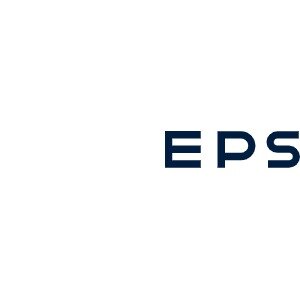Best Natural Resources Lawyers in Curaçao
Share your needs with us, get contacted by law firms.
Free. Takes 2 min.
Or refine your search by selecting a city:
List of the best lawyers in Curaçao
About Natural Resources Law in Curaçao
Curaçao, part of the Kingdom of the Netherlands, is an island known for its rich natural resources, which include a unique ecosystem of marine life, coastal zones, and protected areas. The island's natural resources are crucial for its biodiversity, economy, and heritage. Due to their importance, the regulation and management of these resources are governed by specific laws that ensure sustainable use and conservation. Natural Resources Law in Curaçao aims to balance the needs of economic development with environmental protection and the sustainable use of natural resources.
Why You May Need a Lawyer
There are several situations where individuals or businesses may require legal assistance regarding natural resources in Curaçao. These include:
- Understanding regulations related to the extraction and use of natural resources.
- Acquiring permits for activities that impact natural resources, such as construction projects near protected areas or coastline development.
- Disputes over land use or resource rights, especially in contexts involving private and government interests.
- Environmental impact assessments for new business ventures.
- Compliance with environmental laws and regulations to avoid fines or legal actions.
- Addressing environmental damage or liability claims related to resource use.
Local Laws Overview
Curaçao's legal framework for natural resources is primarily focused on sustainable management and environmental protection. Key aspects include:
- Nature Conservation Ordinance: This law provides guidelines for the conservation of nature reserves and protected areas.
- Environmental Management Decree: Sets requirements for environmental impact assessments and permits for activities potentially harmful to the environment.
- Fisheries Act: Regulates fishing practices to prevent overfishing and protect marine biodiversity.
- Land Use Policy and Planning: Zoning laws that determine how land can be used to balance development with resource conservation.
- Water Resources Management: Governs the use and protection of water resources, including restrictions on pollution and water extraction.
Frequently Asked Questions
What natural resources are most important in Curaçao?
Curaçao's key natural resources include its marine life, coastal ecosystems, coral reefs, and freshwater resources, which are vital for biodiversity and the economy.
Do I need a permit to build near the coast?
Yes, any construction near the coastline typically requires a permit due to potential environmental impacts and existing regulations on land use.
How are marine resources protected in Curaçao?
Marine resources are protected through marine protected areas, fishing regulations, and environmental laws aimed at preserving marine biodiversity.
What is an environmental impact assessment?
An environmental impact assessment is a process that evaluates the potential environmental effects of a proposed project or development, ensuring compliance with environmental laws.
How can I obtain a permit for resource extraction?
To obtain a permit for resource extraction, you must apply to the relevant governmental authority, provide necessary documentation, and comply with applicable environmental assessments.
What happens if I violate natural resources laws?
Violating natural resources laws can result in fines, legal action, and possibly the revocation of permits or licenses related to the activity.
Can I appeal a decision made by a governmental body regarding natural resources?
Yes, decisions made by governmental bodies can often be appealed, but it is advisable to consult a lawyer for guidance on the appeal process.
Are there restrictions on fishing in Curaçao?
Yes, there are restrictions on fishing activities to manage fish stocks and protect marine biodiversity, including limits on fishing methods and areas.
How can conservation efforts be supported in Curaçao?
Conservation efforts can be supported through community participation, volunteering, and adhering to environmental regulations to protect natural habitats.
Who enforces natural resources laws in Curaçao?
Enforcement of natural resources laws is typically carried out by governmental bodies responsible for environmental protection, nature conservation, and resource management.
Additional Resources
For further information and assistance, you can refer to the following resources:
- Curaçao Ministry of Environment and Nature: Offers guidelines and information on environmental regulations and permits.
- Local Environmental NGOs: Such as CARMABI, which provides insights into conservation efforts and marine protection.
- Legal Advisory Firms: Specializing in environmental and natural resources law in Curaçao.
- Publications and Journals: On environmental law and policy that can provide greater context and understanding of local laws.
Next Steps
If you require legal assistance concerning natural resources in Curaçao, consider the following steps:
- Identify the specific legal issue or question you have regarding natural resources.
- Research local law firms or legal experts specializing in natural resources law to find suitable representation.
- Prepare all necessary documentation and background information related to your case or inquiry.
- Schedule a consultation with a lawyer to discuss your situation, options, and potential legal strategies.
- Follow the advice and guidance provided by your legal counsel to ensure compliance and protection of your interests.
Lawzana helps you find the best lawyers and law firms in Curaçao through a curated and pre-screened list of qualified legal professionals. Our platform offers rankings and detailed profiles of attorneys and law firms, allowing you to compare based on practice areas, including Natural Resources, experience, and client feedback.
Each profile includes a description of the firm's areas of practice, client reviews, team members and partners, year of establishment, spoken languages, office locations, contact information, social media presence, and any published articles or resources. Most firms on our platform speak English and are experienced in both local and international legal matters.
Get a quote from top-rated law firms in Curaçao — quickly, securely, and without unnecessary hassle.
Disclaimer:
The information provided on this page is for general informational purposes only and does not constitute legal advice. While we strive to ensure the accuracy and relevance of the content, legal information may change over time, and interpretations of the law can vary. You should always consult with a qualified legal professional for advice specific to your situation.
We disclaim all liability for actions taken or not taken based on the content of this page. If you believe any information is incorrect or outdated, please contact us, and we will review and update it where appropriate.
Browse natural resources law firms by city in Curaçao
Refine your search by selecting a city.












